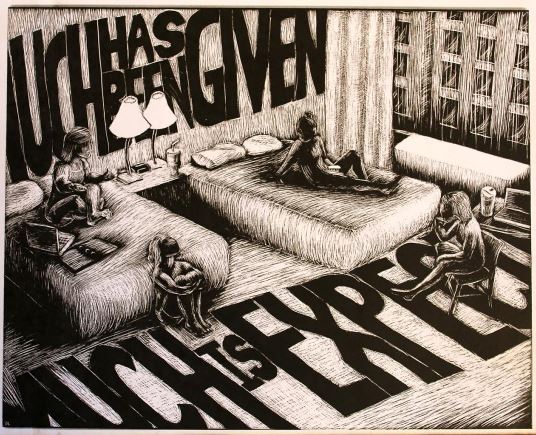Millennials: The Generation of Anxiety
It’s no secret that today’s generation appears more stressed out than our parents or grandparents ever were. Some may blame the growing popularity of social media for our downfall, or maybe it is all of the privileges we have grown so accustomed to thanks to our baby-boomer parents that is setting us up for failure. Unfortunately, there are too many contributing factors to the decline of mental health in people born between 1980 and 2000.
According to the National Center for Health Statistics, the overall suicide rate rose 24% from 1999 to 2014, the highest it’s ever been since 1986 with an average of 13 suicides per 100k people. Approximately 19% of millennials suffer from depression and anxiety, unable to cope with stress in the workplace primarily because of the entitlement that so many college graduates possess. Unlike any generation before, millennials are notorious for being impatient and unwilling to start at the bottom and work their way up, expecting immediate satisfaction. College debt has become an increasingly problematic occurrence, mainly because millennial students are not educated enough about how they should go about paying their loans. According to a survey conducted by Forbes Magazine, 45% were unaware of what percentage of their salary went to paying off their loans, 37% did not know the interest rate on their loans, 15% did not know how much they owed at all, and and an outstanding 44% of college grads could not differentiate between federal and private loans. Forbes also states that in the past year, 43% of graduates with federal student loans are either behind on their payments or are just not making them.
Although this generation seems to be the most connected, accepting, diverse, and perhaps ambitious, millennials are taking advantage of technology and are stopping having real, social interactions more and more as our phones take over. With constant praise a necessity for kids today, they do not grow up working for what they want and instead expect everything to be handed to them on a silver platter. Without engaging in conversation as much as our parents and grandparents did, we create more stress related issues such as loss of sleep. Researchers have discovered that our grandparents and the people who grew up or participated in World War II registered at an average stress level of 3.7, with the baby-boomer generation at 4.7 and the generation of millennials at 5.4.
Despite the hope that this generation seems to bring about the future and their strong desire for success, nothing will be fulfilled if millennials continue to let their stress get in the way of their achievements.

